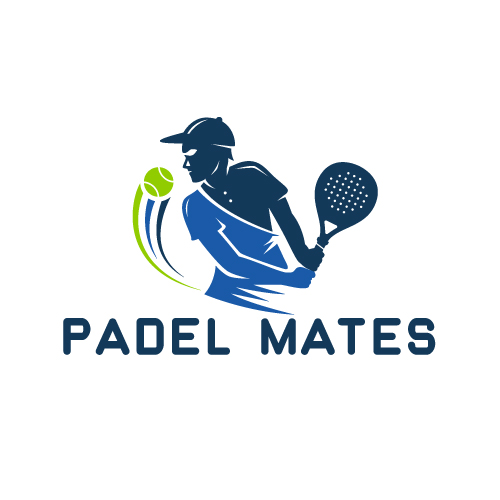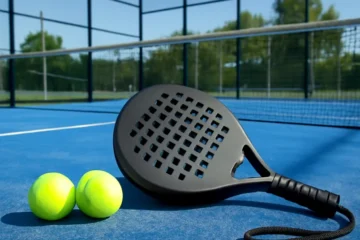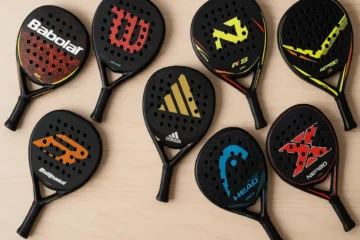Tap into the Excitement and Growth of Padel
Padel is one of the fastest-growing sports worldwide. Its combination of tennis and squash offers an exciting, dynamic experience that attracts people of all ages and skill levels. With its growing popularity, more people are looking for opportunities to play and connect with others who share their passion for the game. However, while padel may be easy to pick up, finding a regular group to play with can be challenging, especially if you’re searching for people at your skill level. This is where starting your own padel meetup group comes in.
State the Problem: Finding Consistent Playmates Can Be Hard
While padel is undoubtedly a social sport, it can be tough to consistently find a group of players that match your skill level, interests, and availability. Local clubs may not always have the right mix of players, or there might not be enough interest for frequent meetups. As a result, many players either end up playing sporadically or not playing at all.
Present the Solution: Starting Your Own Meetup Group
Starting your own padel meetup group is a perfect solution. By building your own community, you can create a consistent opportunity to play with people who share your goals, whether it’s for fun, skill development, or competitive play. In this ultimate guide, we will take you step-by-step through everything you need to know to start your own successful padel meetup group.
What You Will Learn
In this guide, we’ll cover everything from defining your group’s niche to setting up the right platform for your meetups. You’ll learn how to secure the best venue, manage finances, craft your first event, grow your community, and even take your group to the next level. By the end, you’ll have all the tools you need to create a thriving, enjoyable, and sustainable padel meetup group.
Part 1: Laying the Groundwork
1.1 Define Your Group’s Niche & Vision
The first step in starting a successful padel meetup group is determining who your group is for and what your vision is. Identifying your niche will help attract the right people and make your group stand out.
Who Is Your Group For?
Your meetup could be for a variety of people, depending on the kind of atmosphere you want to foster. Some possibilities include:
- Total Beginners: If you want to help people learn the basics of padel in a supportive, beginner-friendly environment, this could be your niche.
- Intermediate Players: If you want to focus on skill improvement and strategy, creating a group for intermediate players might be your focus.
- Competitive Players: For those who are looking for a more serious competitive environment, creating a group for competitive players may be ideal.
- Social Mixer Focus: If you want to foster a casual, social environment with an emphasis on meeting new people, a social mixer group might be perfect.
- Women-Only Groups: Some players might prefer a women-only group, focusing on a supportive and welcoming environment.
- Professionals-Networking: Consider targeting professionals who want to network and play while also using padel as an icebreaker.
What Is Your Mission?
Your mission will help guide the tone and direction of your group. Consider the following options:
- Fun & Social: If your goal is simply to bring people together for fun, you can create a relaxed and non-competitive environment.
- Skill Improvement: Focusing on developing players’ skills will attract people who want to take their game to the next level.
- Competitive Gameplay: If you want your group to focus on improving through competition, your mission can revolve around challenging one another in friendly but competitive games.
Naming Your Group
A strong name is key to attracting the right members. Choose a name that is catchy, descriptive, and easy to remember. It should also reflect your group’s vision. For example, if you’re focusing on a beginner-friendly, social group, a name like “Padel Fun for All!” would work well.
1.2 Secure Your Venue: The Heart of Your Meetup
Once you’ve defined your niche and vision, the next step is securing a venue. Your local padel courts will be the heart of your meetups, so it’s essential to find the right one.
Research and Contact Local Padel Clubs/Facilities
Start by researching local padel clubs, gyms, or facilities that offer court rentals. Contact them to get a feel for their availability and pricing. Here are some key questions to ask:
- What are their court rental rates?
- Are there membership requirements?
- What are the peak and off-peak hours for court availability?
- Do they offer group discounts or partnerships for regular meetups?
Accessibility Considerations
It’s crucial to consider the accessibility of the venue. Is it located in a convenient area with easy access to parking or public transport? A venue that is centrally located and easy for people to reach will attract more participants.
1.3 The Financials: Creating a Sustainable Model
Now that you’ve chosen your venue, it’s time to think about how you’ll manage finances. There are several models you can consider:
The “Pay-As-You-Play” Model
This model allows players to pay for each session they attend. This is a flexible option for both you and your participants, especially for those who might not be able to commit to a regular schedule. Make sure to set a clear payment method (such as PayPal, Venmo, or bank transfer) and collect the necessary fees to cover court costs and any additional expenses.
The Membership/Subscription Model
With this model, players pay a monthly or annual fee in exchange for guaranteed spots at meetups. This model provides more financial stability, as you’ll know in advance how many participants to expect. It also helps create a more committed group, as members will be more likely to show up if they’ve already paid.
Pricing Your Events
When pricing your events, consider the court rental costs, any admin fees, and additional expenses (such as drinks or snacks). Be sure to price in a way that’s affordable for participants while covering your costs.
Part 2: Getting Organized & Launching
2.1 Choosing Your Platform
Selecting the right platform for organizing and promoting your group is crucial for attracting the right players. Here are some of the most popular platforms:
Meetup.com
Meetup is one of the best platforms for organizing groups and events. It’s user-friendly, and it allows for easy discoverability by people looking for local activities. However, there is a small fee to create a group, and it can sometimes be less informal than other options.
Facebook Groups
Facebook Groups are free and very easy to set up. They allow for a more informal and personal approach, where members can interact with each other between meetups. The downside is that it’s harder for people outside your network to find your group.
WhatsApp/Telegram Groups
Both WhatsApp and Telegram are great for direct communication with your members. However, they’re not ideal for public discovery and can become overwhelming if your group grows too large.
Dedicated Sports Apps (e.g., Playtomic)
Sports apps designed specifically for padel players can be a great choice. Playtomic, for example, allows you to organize events, book courts, and even track player performance.
2.2 Crafting Your First Event Page
Your first event page will be crucial in attracting participants. Be sure to include the following:
- Clear, descriptive title: Make sure the title reflects your group’s niche and is easy to understand (e.g., “Social Padel for Beginners @CityPadelClub”).
- Detailed description: Describe who the event is for, what participants can expect, and the skill level required.
- Essential information: Include date, time, location, duration, and cost. Make it clear what players should bring (rackets, water, appropriate footwear).
- Attendee Limit: Set a limit to ensure everyone gets enough court time (e.g., 8 people for one court, 16 for two courts).
2.3 Establishing the Rules of Play
Setting clear expectations for how the games will run is essential. Some things to consider include:
- Game format: Will it be round-robin, winners stay on, or timed matches?
- Fair play and rotation: Ensure everyone gets a chance to play with different people and enjoy themselves.
- No-show policy: Set clear rules for handling last-minute cancellations, such as a waitlist or a penalty for no-shows.
- Code of conduct: Emphasize sportsmanship, respect, and creating a positive atmosphere.
Part 3: Growing and Managing Your Community
3.1 The First Event: Making a Great Impression
Your first event sets the tone for your group. Arrive early, greet everyone with a friendly attitude, and set the stage for a welcoming and fun environment. Take a few minutes to explain the format, rules, and expectations. This will help create a low-pressure atmosphere that encourages everyone to have fun and connect.
3.2 Communication Is Key
Keep in touch with your group regularly by sending confirmation messages, reminders, and updates. Be responsive to questions, and ask for feedback after the first few sessions to ensure the group is running smoothly.
3.3 Strategies for Growth
To expand your group, encourage members to bring friends and promote your events on local community boards or social media platforms. Partner with your venue to help spread the word, and consider offering incentives for referrals.
3.4 Handling Common Challenges
- Balancing skill levels: Consider creating separate events for beginners and intermediate players to ensure everyone has a fair and enjoyable experience.
- No-shows: Implement a waitlist system or establish a stricter cancellation policy.
- Managing group dynamics: Ensure inclusivity by being proactive in dealing with any issues and encouraging positive interactions.
Part 4: Taking Your Group to the Next Level
To take your padel meetup group to the next level, consider organizing a mini-tournament or ladder league. Hosting social events off the court (like watching professional matches together or organizing post-game drinks) can also build camaraderie. Partnering with a coach to offer group clinics or celebrating milestones like your 100th member can keep the group engaged and growing.
Conclusion
Recap the Key Steps: Plan, Partner, Promote, and Play
Starting a successful padel meetup group involves planning your niche, securing a venue, and managing finances. With the right platform, clear event pages, and consistent communication, you can grow your group into a thriving community. By promoting inclusivity, encouraging social interactions, and taking your group to the next level, you’ll be able to provide a fulfilling and consistent experience for all members.
Frequently Asked Questions (FAQs)
1. What is a padel meetup group?
A padel meetup group is a community of people who regularly come together to play padel. These groups are often organized through platforms like Meetup.com or Facebook, where players can join events based on their skill level, location, and interests. The goal is to create a consistent opportunity for people to play and connect.
2. How do I start a padel meetup group?
To start a padel meetup group, you’ll need to define your group’s niche (e.g., beginners, competitive players, social mixers), secure a venue (like a local padel club), set up a payment structure (either pay-as-you-play or membership), and choose a platform to organize and promote your events (such as Meetup.com or Facebook Groups). Finally, craft your first event page with clear details on the schedule, rules, and attendee limits.
3. How much does it cost to join a padel meetup group?
The cost to join a padel meetup group can vary depending on the payment model. It may be a one-time fee for each event (pay-as-you-play) or a regular membership fee (monthly or annual) that guarantees participation in several events. Costs typically cover the court rental, any admin fees, and sometimes refreshments or equipment.
4. How can I find a padel meetup group near me?
You can find a padel meetup group by searching on platforms like Meetup.com, Facebook Groups, or dedicated sports apps such as Playtomic. Look for groups that match your skill level, interests, and location. Additionally, local padel clubs or facilities often promote or host their own community events.
5. Can I start a padel meetup group if I’m a beginner?
Absolutely! Starting a padel meetup group as a beginner is a great idea. You can create a group focused on teaching others the basics of the game while fostering a fun and welcoming atmosphere. The key is to make the environment supportive and non-judgmental, so everyone can enjoy learning and improving.
6. How do I manage no-shows in my padel meetup group?
Managing no-shows can be tricky, but you can handle it by setting up a waitlist system for events and implementing a clear cancellation policy. Some groups charge a small fee upfront or introduce penalties for last-minute cancellations to ensure participants show up.
7. How do I grow my padel meetup group?
To grow your padel meetup group, be consistent with event scheduling, promote your group on local community boards and social media, and encourage existing members to bring a friend. Building partnerships with local padel venues or coaches can also help attract new players. Be sure to offer fun, engaging events to keep current members coming back.




